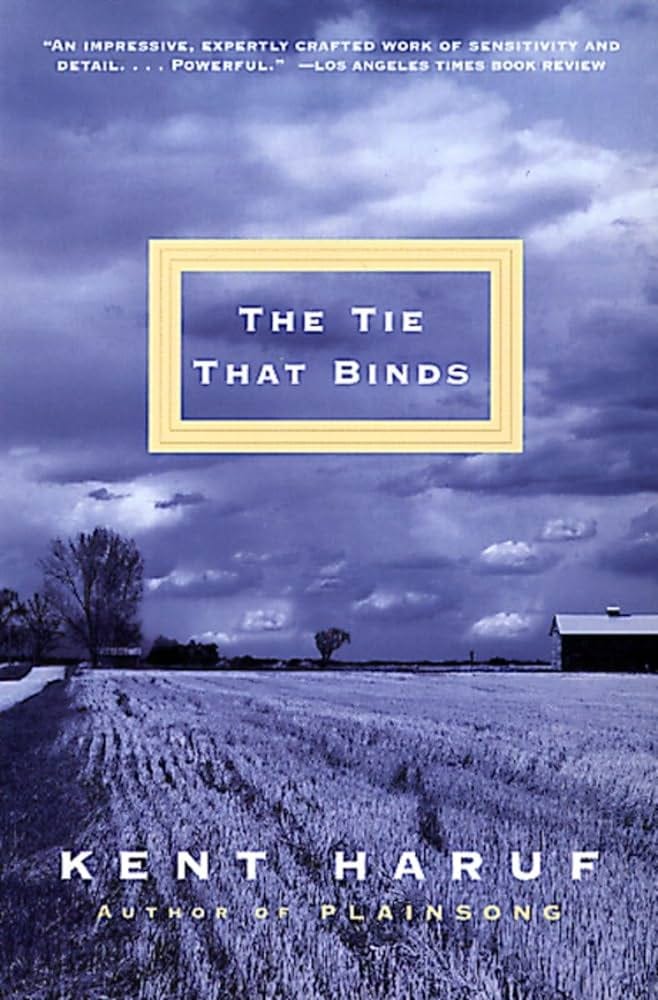The Tie That Binds, by Kent Haruf
"Regardless, they were still good years, good times. I believe that."
Something happens to me a lot when I am reading a novel, especially a newer novel. I will get about halfway through and look up and be like: “huh, well, I guess that this is all this book is about.”
Usually, I find it a disappointing revelation. As in, there should be more here, but it looks like there won’t be, and that’s a bummer.
That happened to me about halfway through this book, but instead of a disappointment, it actually worked. The writer was trying to say something about the years drifting past us and he was doing it with the pacing and content of his stories about two families in rural northeastern Colorado.
And that’s what this book is ostensibly about: watching the years and decades go by as we remain tied to a place, a person, a house. And how usually it is women who are tied down in this way. Forced into a life taking care of others out of a sense of duty. And how that just becomes their whole life, until there just isn’t much left of it.
But I don’t think that’s what this book is really about. I think it’s a smoke screen.
The years in the story fly along, decades streaming by in just a sentence or a paragraph, with pauses to fill us in on the major events. But then, about two thirds of the way through, the story slows down to an almost glacial pace, grinds to an absolute halt, and the narrator begins to focus on the seemingly meaningless minutia of the days and hours that precede a tragedy. It’s almost as if the writer is telling us that we need to slow down, to pay attention, because he’s about to tell us what the book really is about. And it’s also as if the narrator is putting off telling us as long as possible. And then when he does tell us, he moves past it as quickly as possible, even though in the writing and the telling we, the reader, know that this is an absolutely brutal thing to happen to someone, anyone. Something we would not wish on our worst enemy. And that the narrator’s heart is well and truly broken.
And I think the main story — which is a very good, very sad, very immersive story — is but a smokescreen for this story within the story. A way for the narrator to tell the other story, the story that he really wants to tell. He keeps it at arm’s length from us, because it belongs to him and his family, and because it is so tragic, so awful, but he still wants us to know.
This is similar to the plot within the plot (within the plot) of the movie The Grand Budapest Hotel. Behind all the madcap set pieces and stolen paintings and memorable one liners is just the simple, almost hidden, reason behind the old man telling his story to the young writer: because he misses and mourns his beloved Agatha. That’s what the movie is really about.
*
This is a tragic and sad but wonderful book. I would definitely recommend it.
*
Next up: Zone by Mathias Énard (which is a beast, so it might be a while before the next newsletter).
Thanks for reading!
If someone forwarded you this newsletter, you can subscribe here.



